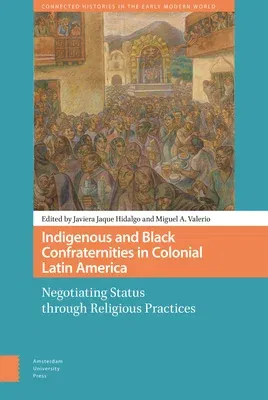Indigenous and Black Confraternities in Colonial Latin America: Negotiating Status Through Religious PracticesHardcover, 20 February 2022

Temporarily out of stock
Free Delivery
Cash on Delivery
15 Days
Free Returns
Secure Checkout

Part of Series
Connected Histories in the Early Modern World
Print Length
408 pages
Language
English
Publisher
Amsterdam University Press
Date Published
20 Feb 2022
ISBN-10
9463721541
ISBN-13
9789463721547
Description
Product Details
Book Format:
Hardcover
Country of Origin:
US
Date Published:
20 February 2022
ISBN-10:
9463721541
ISBN-13:
9789463721547
Language:
English
Location:
Amsterdam
Pages:
408
Publisher: